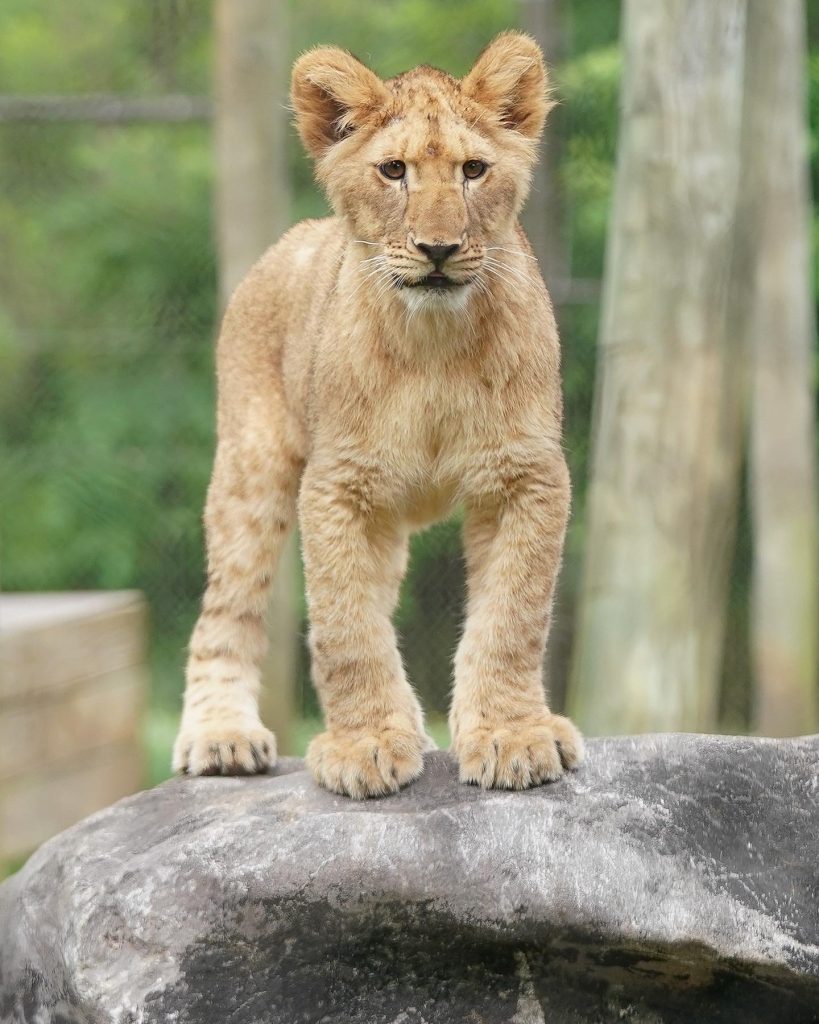
Saving Lions from Extinction Both Locally and Globally
Written by: Scarlett Rockhold, Communications Manager at Zoo Knoxville
The number of lions in the wild is decreasing rapidly. Lions are classified as a vulnerable species and heading towards the endangered species list. Accredited by the Association of Zoos and Aquariums, Zoo Knoxville is working locally to save lions from extinction by maintaining a genetically diverse population. Maji and Anga, Zoo Knoxville’s 7 month old lion cubs, are an example of the success of this effort.
But we aren’t stopping there. Zoo Knoxville is also working globally to save lions from extinction. When you buy a ticket or purchase a membership to see the species we are caring for here in Knoxville, your money also goes to hardworking conservation organizations such as Lion Landscapes to help fund programs like their Ruaha Carnivore Project.

One of the main threats to lion survival is human-wildlife conflict. An extremely high level of human-wildlife conflict exists within the Ruaha village in Tanzania. Ruaha is an important area for lion conservation because this area supports 10% of all remaining lions in the world.
The livestock in Ruaha is critical to the villagers’ survival, and large carnivores often feed on their livestock. In order for the villagers to protect their livelihood, lions are often poisoned. These poisonings not only kill lions but also have devastating effects to other endangered species.
The Ruaha Carnivore Project is a Lion Landscapes initiative dedicated to achieving successful human-carnivore coexistence by empowering local communities, and developing effective strategies for long-term carnivore conservation. Lion Landscapes empowers locals to implement better, non-lethal livestock protection methods such as the use for fortified enclosures and livestock guarding dogs.
Due to the boots on the ground work of Lion Landscapes and the support from organizations like Zoo Knoxville, the Ruaha Carnivore Project has seen great success! The fortified livestock enclosures implemented have been shown to reduce livestock attacks by 95%.
We invite you to join our local and global conservation efforts by becoming a member today. When you become a member, you are safeguarding a healthy population in human care and contributing to the largest conservation movement on the planet.
